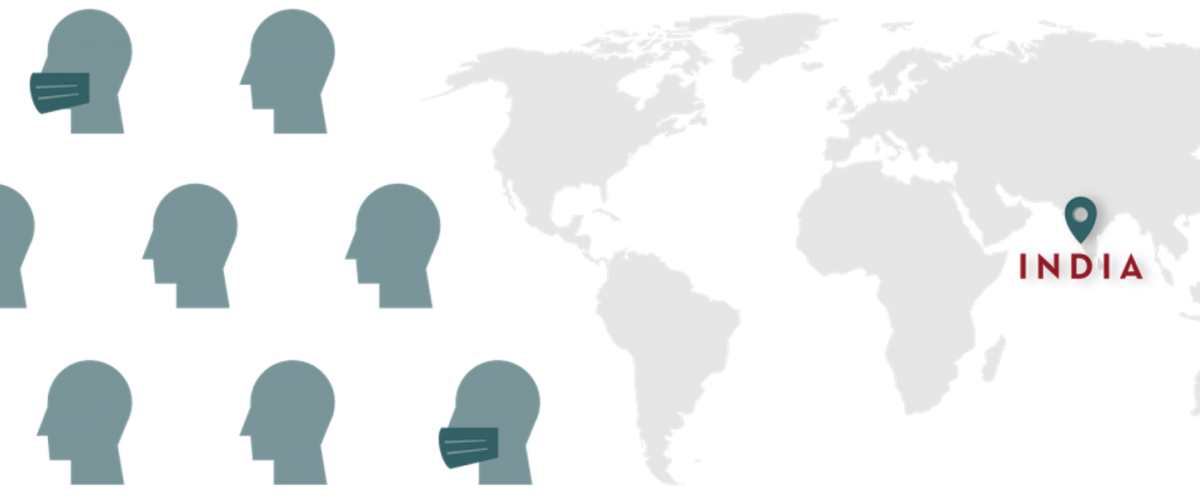COVID-19 Global Perspective from India
Dr. Raghu Radhakrishnan is a Professor in Oral Pathology at Manipal College of Dental Sciences, and Director of International Affairs & Collaborations at the Manipal Academy of Higher Education, Manipal, India.
As part of our COVID-19 Global Perspective Series, we reached out to Dr. Radhakrishnan to hear how the COVID-19 pandemic is affecting India.
What ways has your country's government responded to the COVID19 outbreak and pandemic? When did you begin seeing a response?
- High level political commitment
- Social experiment and motivation
- Social distancing messages
- Appreciation to healthcare workers and all other sectors
- Healthcare service mobilization and effective delivery
- A country-level lockdown to interrupt transmission of virus
How do you anticipate your country's health systems will be impacted? What are you and your institution doing to prepare for COVID19? How do you anticipate your country's health systems will be impacted?
Service Delivery:
- Continuity of care in Reproductive, Maternal, Newborn and Child Health would experience difficulty in accessing required care and basic services like vaccination and follow-up
- Continuity of care for chronic diseases and disabled individuals would pose a challenge
- Patients who are on Directly Observed Treatment Short-Course (DOTS) for TB would experience difficulty accessing medicines
- The entire supply chain management would be affected for various ailments as resources are diverted towards fighting a pandemic
Information and Evidence:
- It is important to ensure that routine data collection, analysis and use of information in decision making continues.
- For example collection of data on routine immunization, Mother and Child Tracking System, Tracking of TB, HIV and other infectious diseases.
Medical Products and Technologies:
- Ensuring equitable access to essential medical products and technologies is affected as you can see basic masks, medicines, and ventilators are not sufficient to handle a pandemic.
- Balancing demand and supply is a challenge during a pandemic
Health Workforce:
- The health workforce would experience physical, mental and social stress during a pandemic. In-equitable distribution of workforce will impact other healthcare services
Health Financing:
- During the pandemic, diversion of resources towards curative care, research and development leads to a lack of resources for primary and secondary care services
Leadership and Governance:
- A pandemic can be addressed only by inter-sectoral coordination and inter-sectoral leadership, coalition, and collaboration among various ministries/departments to resolve this pandemic situation. It is time for the leadership to come together to re-think health-system design issues and the promotion of accountability to protect the public interest in health.
In what ways will your country/city/community be uniquely affected that differs from other places in the world?
- In my opinion: “Every crisis is an opportunity to learn." We learn that we need to re-look at our vision for healthcare services, education, and research.
- India has large un-organized sectors and internal migration. These sectors also contribute to the informal economy. This sector is most affected right now.
What are people doing locally to build support for their most vulnerable community members, neighbors, and family members?
- Community services are organized by government and private agencies for groceries, fruits, and vegetables.
- Middle-aged men and women are taking care of the elderly and children.
- There are online consultations organized for basic care and advice.
- The joint family system in India is helping during this crisis.
What have you seen happen in the community that gives you hope or solidarity for positive outcomes?
- Social distancing
- Helping each other by arranging groceries, fruits, and vegetables
- Necessary emergency health services are functioning
- Dedication of the entire hospital for the care of COVID-19 patients
Why is it more important now than ever before to collaborate with global partners?
We have to collaborate because the pandemic taught us:
- “Get your basics right”
- “Focus on Human Learning not Machine Learning”
- Sharing of information and best practices not only in health but beyond health
- Need for Systems thinking and Inter-sectoral Public Policies for wellbeing
- Re-design health system: Services, Education, Leadership, Technology application, Research and Development
COVID-19 Global Perspectives
Our COVID-19 Global Perspectives Series features insights and updates from our global health partners around the world.
